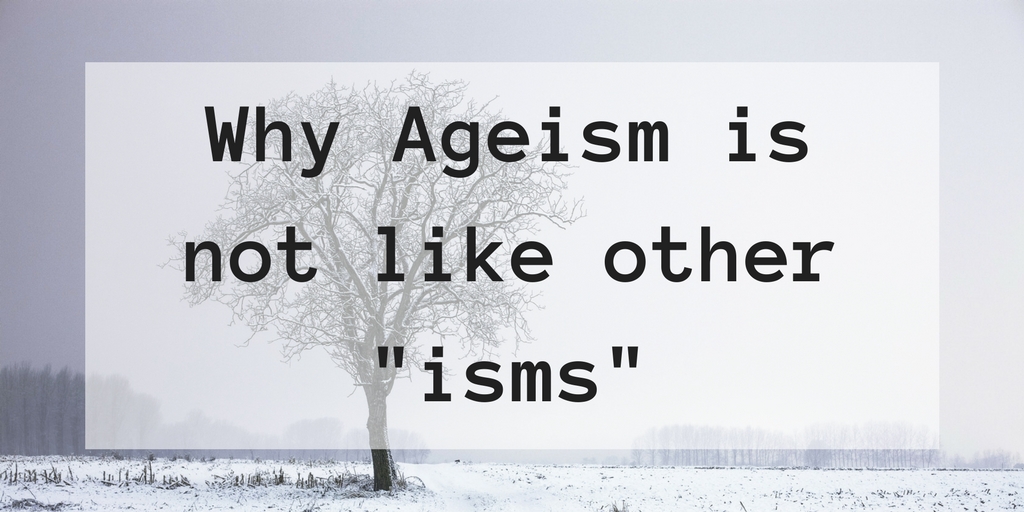
By Sarah Matschi, Communications Intern
Ageism, prejudice against age, has started to become the new hot ‘ism’ that people are talking about.
Common headlines include
“We Need to Combat Ageism Just Like We Do Sexism” (Huffington Post)
“Ageism in the workplace ‘just as bad as racism’” (The Times UK)
“Ageism ‘bigger problem than racism or sexism’” (The Independent UK)
All these titles compare ageism to the well known social justice struggles of racism and sexism. However, there is one key difference being overlooked. Unlike sexism and racism, everyone is or will be a victim of ageism, and everyone is or has also been the offender too.
Ageism isn’t something that someone deals with the same way their whole life. You can be ageist and be discriminated against for your age at the same time. The same people who were discriminated against in their youth are the same people who won’t hire someone younger than everyone else at the office. The same older adults who dyed their hair and got anti-wrinkle cream to appear younger have prejudices against hiring peers their same age.
Because of this, no one is exempt from taking some responsibility on the issue of ageism.
By critiquing the way we have looked at ageism in comparison to sexism and racism isn’t to say ageism is a lesser or unimportant issue. Ageism faces the less common dilemma of being a generally acceptable way to treat someone. We avoid asking our parents or other older adults how old they are, we blame our age for ‘memory loss’, or we accept advertisements that deem older adults as incapable of doing something. Whether we are the ones being ageist or the victims of ageism, when it happens not much is done because it is ‘just the way it is’.
We shouldn’t accept someone treating others differently because of their age, the same way we don’t accept others treating people differently because of other factors such as sex and race.
Though each of these ‘isms’ are a long ways away from being solved, Ageism still has yet to even be accepted by everyone as being a problem, because the negative stigma of aging is so ingrained in our society.
We need to start recognizing when we are being ageist, whether in the way we speak or our actions. We need to start recognizing the issue of ageism as a real problem, and start Reimagine Aging.



